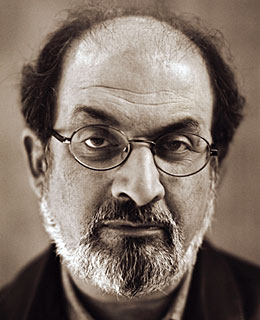
Salman Rushdie
Born in 1947, the year of India's independence, to a secular, well-to-do Muslim family in Bombay, Salman Rushdie's first screams were echoed back by the religious violence that wracked the country during Partition. In 1981, he penned Midnight's Children, an epic novel of the nation's troubled birth, to rave reviews, and has never looked back, remaining at the top of an ever-growing list of Indian postcolonial authors who take his example as their inspiration. But his irreverent account of the Prophet Mohammed in 1988's The Satanic Verses earned a fatwa calling for his execution from Ayatollah Khomeini that sent him into hiding for nearly a decade. Rushdie has since emerged, unrepentant, into the public eye — he married (and later divorced) former model and U.S. TV host Padma Lakshmi in 2004 — and continues to be a lightning-rod for notoriety. His Knighthood in June sparked another round of protests in Muslim countries. Yet through it all, he has continued to write thoughtful novels about religion and identity — his latest, Shalimar the Clown, is set in the strife-torn territory of Kashmir — and remains a symbol of cosmopolitanism in an increasingly tribalized world.
—By Ishaan Tharoor